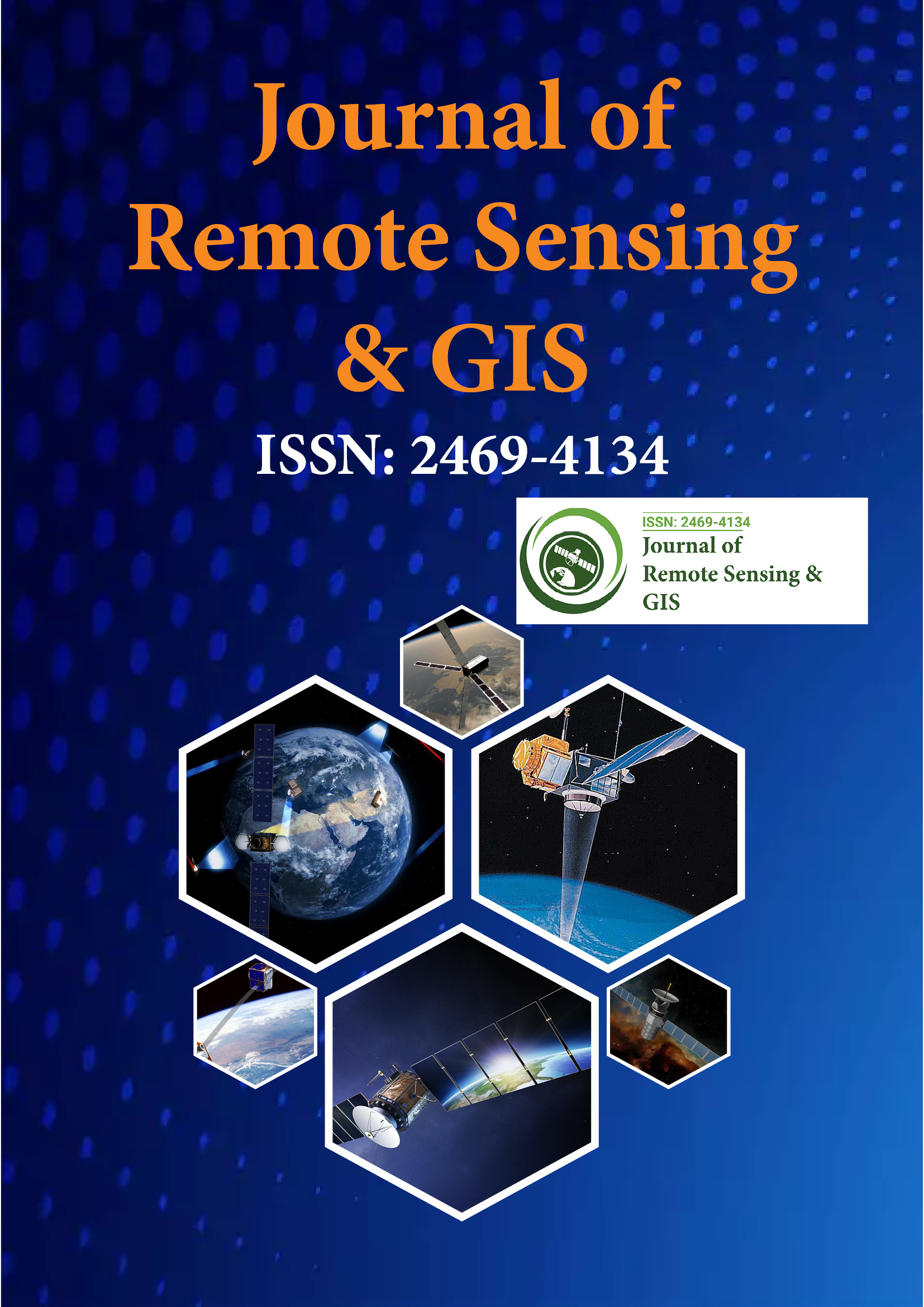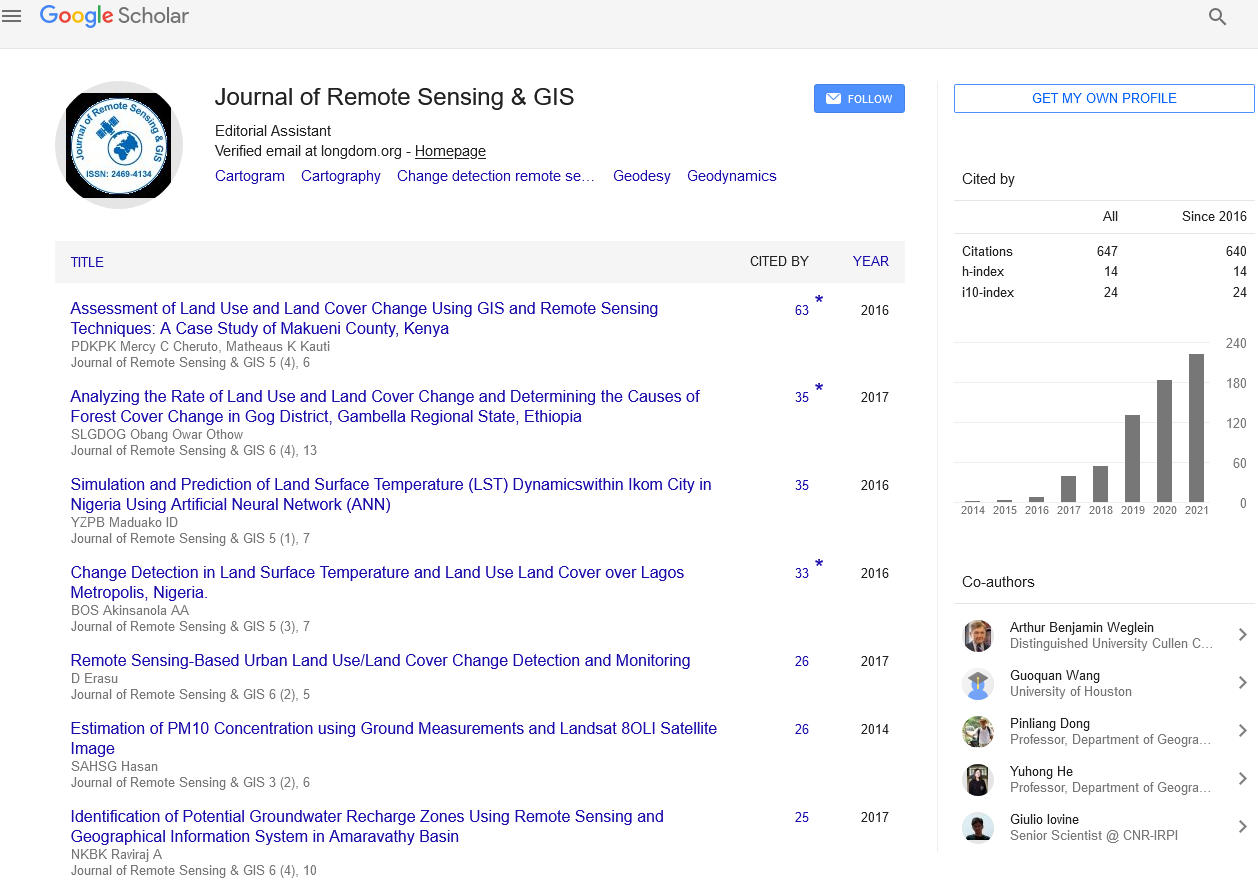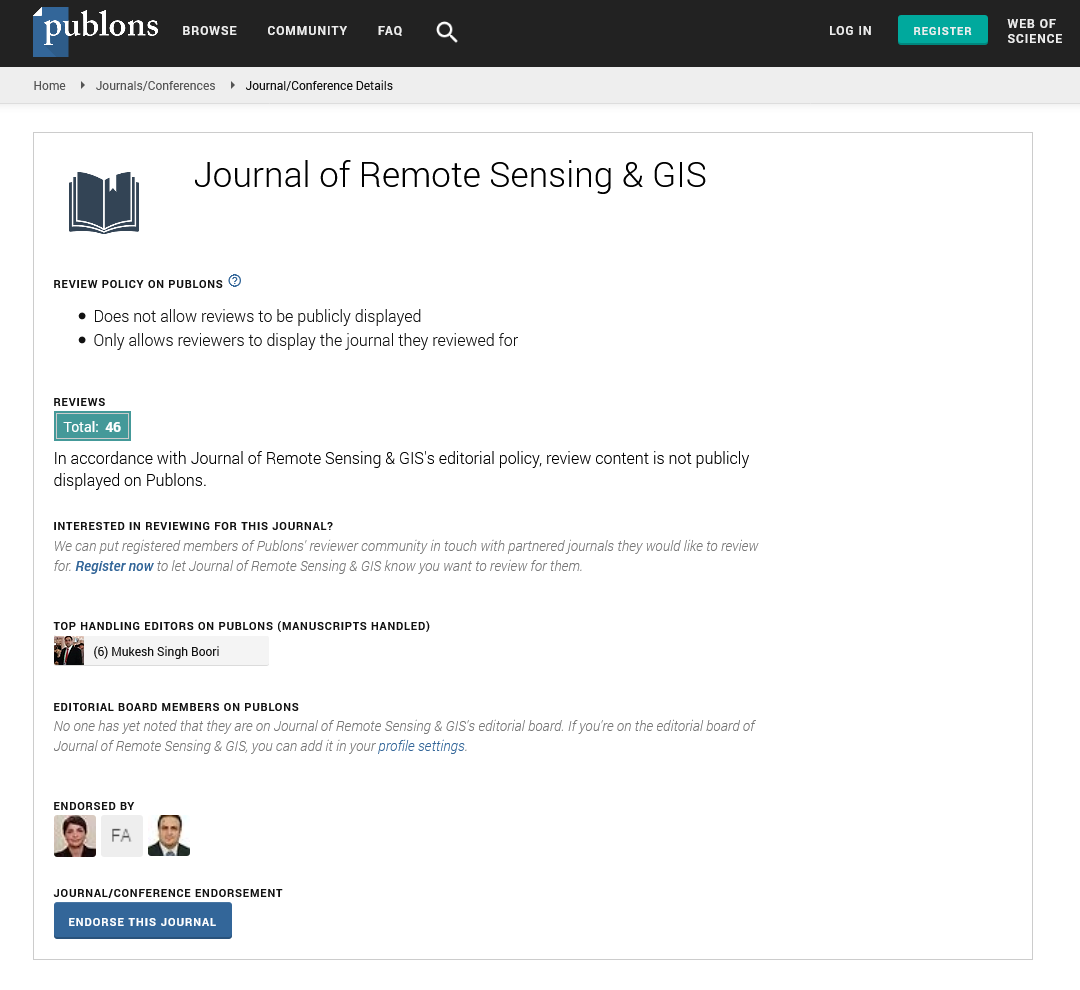Indexed In
- Open J Gate
- RefSeek
- Hamdard University
- EBSCO A-Z
- OCLC- WorldCat
- Publons
- International Scientific Indexing
- Euro Pub
- Google Scholar
Useful Links
Share This Page
Journal Flyer

Open Access Journals
- Agri and Aquaculture
- Biochemistry
- Bioinformatics & Systems Biology
- Business & Management
- Chemistry
- Clinical Sciences
- Engineering
- Food & Nutrition
- General Science
- Genetics & Molecular Biology
- Immunology & Microbiology
- Medical Sciences
- Neuroscience & Psychology
- Nursing & Health Care
- Pharmaceutical Sciences
Abstract
Development of a Point-based Method for Map Validation and Confidence Interval Estimation: A Case Study of Burned Areas in Amazonia
Liana Oighenstein Anderson, David Cheek, Luiz EOC Aragão, Luaê Andere, Brenda Duarte, Natália Salazar, André Lima, Valdete Duarte and Egidio Arai
Forest fires and their associated emissions are a key component for the efficient implementation of the Reducing Emissions from Deforestation and Forest Degradation (REDD+) policy. The most suitable method for quantifying large scale fire-associated impacts is by mapping burned areas using remote sensing data. However, to provide robust quantification of the impacts of fire and support coherent policy decisions, these thematic maps must have their accuracy quantitatively assessed. The aim of this research is to present a point-based validation method developed for quantifying the accuracy of burned area thematic maps and test this method in a study case in the Amazon. The method is general; it can be applied to any thematic map consisting of two land cover classes. A stratified random sampling scheme is used to ensure that each class is represented adequately. The confidence intervals for the user’s accuracies and for both overall accuracy and area error are calculated using the Wilson Score method and Jeffrey Perks interval, respectively. Such interval methods are novel in the context of map accuracy assessment. Despite the complexity of calculation of the confidence intervals, their use is recommended. A spreadsheet to calculate point and interval estimates is provided for users.


